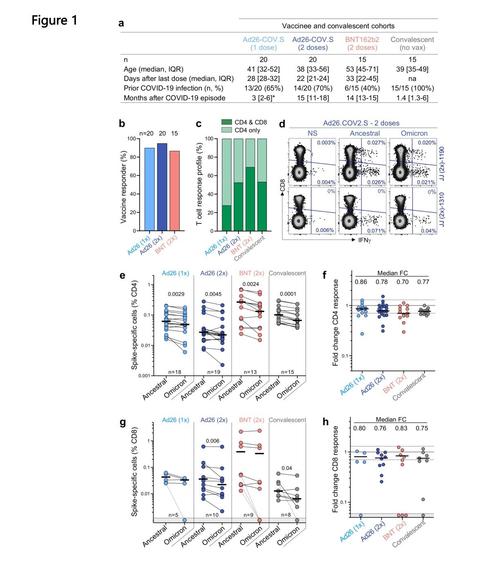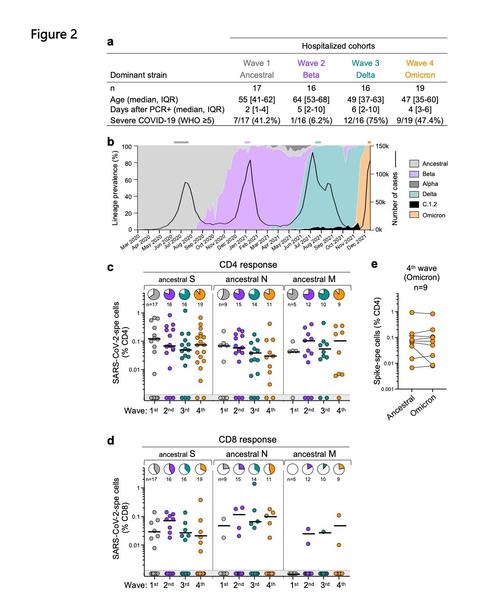Two new studies - one from Erasmus University in the Netherlands and one from the University of Cape Town in South Africa - have just reminded humanity that our antibodies aren't the last line of defense against COVID, and its newest variant, omicron.
Both have confirmed that T-cells, what Bloomberg describes as the body's weapon against every virus-infected cell, have shown a surprising ability to defend against omicron.
The report goes on to explain that T-cells are the reason why mortality hasn't increased alongside the advent of omicron: with or without vaccines, the human body still has a tool in its toolkit to suppress viruses like these. The T-cell's most critical attribute, when it comes to fighting viruses, is that they target the whole of the spike protein that viruses use to bind with human cells. Because of this, mutations that impact the spike protein (omicron was said to have 50 pertinent mutations in that department) won't help it evade the T-cell response.
For their study, the Dutch researchers looked at 60 vaccinated health-care workers and found that while their antibody responses to omicron were lower or nonexistent (compared with the beta or delta), their T cell responses were largely unaltered and still potent, "potentially balancing the lack of neutralizing antibodies in preventing or limiting severe Covid-19," according to the study.
The other study, from the University of Cape Town’s Institute of Infectious Disease and Molecular Medicine, looked at recovered COVID patients, and those who had been vaccinated with the Pfizer or J&J jabs.
While antibodies didn't fare well, they found that 70% to 80% of the T-cell responses were able to suppress omicron.
Vaccines are helpful in that they help induce a T-cell response to the virus, according to the Dutch researchers. Overall, these results demonstrate that vaccination and infection induce a robust CD4 and CD8 T-cell response that largely cross-reacts with omicron, consistent with recent work from our laboratory and others on limited T-cell escape by Beta, Delta and other variants..."
The Dutch summarized the data from their study in a pair of figures, presented below:
Readers can find the Dutch study below courtesy of medrxiv:
5.3.6 Postmarketing Experience by Joseph Adinolfi Jr. on Scribd
Here's something to think about, dear reader, as the people in charge try to solve a problem with more of the same (ie more bosters for the already-boosted): immune protection has several layers. While antibodies block infection, T-cells kill infected cells, preventing the virus from spreading and causing more damage. Wendy Burgens, one of the authors of the University of Cape Town study, wrote on her Twitter account Virus Monologues. "They can’t prevent you from getting infected, but they can minimize the damage that comes afterwards," she said.
That's something to keep in mind.
https://www.zerohedge.com/medical/t-cells-minimize-damage-caused-omicron-studies-show


No comments:
Post a Comment
Note: Only a member of this blog may post a comment.